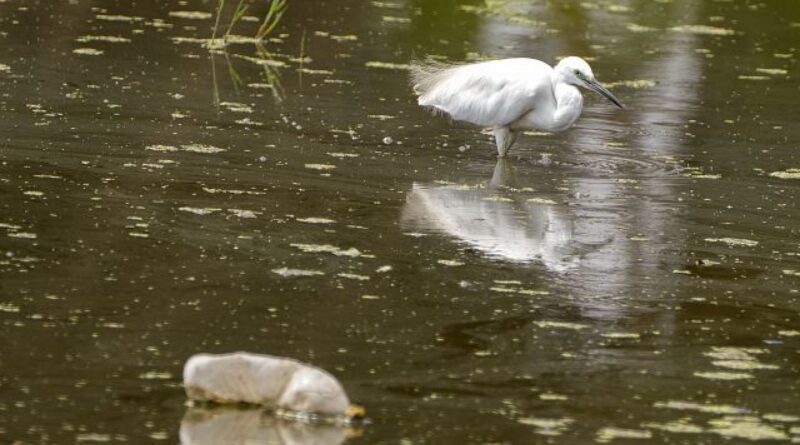Egyptian start-up turns plastic waste into tiles
In a factory on the outskirts of the Egyptian capital, Cairo, workers are using tiny shards of discarded plastic to make tiles.
TileGreen, which started three years ago, aims to make the country’s construction industry more environmentally friendly.
The young entrepreneurs at the start-up are combatting two problems. The country’s huge levels of plastic waste and high levels of emissions from cement used in the building sector.
“We invented a technology and an industrial process whereby we transform all forms of plastic wastes, namely those of low value, into building materials,” says Khaled Raafat, the co-founder of the company and chief technology officer.
“We manufacture a material named polymer aggregate composite, where we mix plastic wastes with natural aggregates like sand and gravel in order to produce a substitute for concrete. We can use this composite to produce multiple products.”
These tiny shards of plastic are mixed with sand to create a substance that is moulded into the final product.
TileGreen focuses on unwanted plastic waste that usually ends up in dumpsters, or on the street, as single-use plastic bags and other food containers that cannot be safely recycled.
Raafat says Egypt produces around 4.5 million tonnes of plastic wastes a year and each tile takes about 125 plastic bags out of the environment.
According to the global environmental “Black to Blue” initiative, Egypt is responsible for 43 per cent of plastic waste dumped annually in the Mediterranean Sea.
The building and construction sector is by far the world’s largest emitter of greenhouse gases.
It is crucial to reduce the carbon footprint from the production and use of materials such as cement, steel, and aluminium.
“The manufacturing of these materials produces carbon emissions which eventually contributes to climate change,” says Mohamed El Zayet, adjunct assistant professor of environmental engineering at The American University in Cairo.
“For example, the manufacturing of one kilogramme of cement produces nearly one kilogramme of CO2, which is a greenhouse gas. Hence, we are speaking on an industry that has a terrible impact on the environment.”
Construction and real estate are widely seen as the driving force of Egypt’s economic growth.
Both sectors accounted for nearly 19 per cent of the country’s GDP in 2022, according to the Central Bank of Egypt’s latest figures.
However, government figures show that the construction and manufacturing industries are responsible for 23 per cent of CO2 emissions.
The European Bank for Reconstruction and Development, in a 2016 report found that Egypt’s cement sector alone accounts for nearly 14 per cent of emissions.
Two years ago, TileGreen supplied SODIC, a leading real estate developer, with interlocking tiles for the pathway outside its administrative complex.
“Their passion to produce a very interesting building material from a technical, quality, and aesthetic perspective, gives us the opportunity to collaborate with them,” says its chief development officer, Ahmed El-Halawany.
He says this is not only because it is a high quality building material, but also because it is aesthetically pleasing.
SODIC is currently discussing opportunities for more projects with the start-up which says its technology can be applied to produce more than 40 products.
“Our technology can allow us to produce building bricks, floor tiles, pillars, different precast products as well as urban furniture,” says Raafat.
El Zayet says start-ups like TileGreen need to be offered incentives, “whether tax or financing perks”, so they continue to exist in the Egyptian market and keep growing.
“We also need to raise the awareness of developers and users that such options are available on the market. Any designer who wants to construct a green building needs to know first what green material is out there.”
TileGreen is one of many Egyptian start-ups that have emerged in Egypt in recent years to offer solutions ensuring sustainability and green transformation in various sectors.

